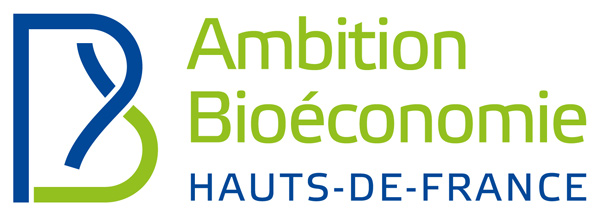UMRt: the birth of a unique research centre in the Hauts-de-France region
UMRt BioEcoAgro
300 French and Belgian researchers and technicians make up the strength of the brand new UMRT (cross-border mixed research unit) called BioEcoAgro. Their mission: to develop an international centre of excellence in applied biological engineering, biotechnology, agri-food and the environment.

A WORD FROM…
Philippe JACQUES, Director of UMRT BioEcoAgro
When and how did the UMRT BioEcoAgro story begin?
The UMRT BioEcoAgro is a new entity (founded on 1 January 2020), bringing together some 300 researchers and technicians from both sides of the border. Its mission is to develop an international centre of excellence in applied biological engineering, biotechnology, agri-food and the environment. Designed on the template of a laboratory without walls combining researchers from INRAE, Liège University, Lille University, Picardie-Jules-Verne University, Littoral-Côte-d’Opale University, Artois University and YNCREA, it focusses on combining (eco)systemic and molecular approaches in order to:
- Understand how plants and ecosystems function in natural or controlled environments and in the context of climate change;
- Decode and control the synthesis or bioproduction of active biomolecules (specialist metabolites and plant-based polymers, microbe-based enzymes and secondary metabolites and active peptides from the hydrolysis of food proteins);
- Food biopreservation and formulation.
The multidisciplinary and complementary expertise at UMRT BioEcoAgro also enables it to develop cross-functional research, such as the development of new biocontrol agents for plant diseases: ranging from high throughput screening in the field, to understanding their mode of action and the development of bioprocesses.
The UMRT is closely involved in developing platforms of excellence such as Equipex Realcat, FoodIsLife, AgricultureIsLife and EnvironmentIsLife (Ecotron) and the national long-term observation platform for agro-ecosystems, biogeochemical cycles and biodiversity (ACBB) for its field crop activities. It manages two measurement stations under the aegis of ICOS (Integrated Carbon Observatory System).
Committed to upstream research at the international level, it is also the objective of UMRT BioEcoAgro to develop the bioeconomy. Its researchers work in close collaboration with the bio-industries and operators in the world of agriculture, in the cross-border region and beyond.
What are the milestones and major projects that have marked the growth of the laboratory?
The founding of the UMRT is the result of an ongoing effort over the past 15 years to structure research in the fields of biological engineering in the Départment of Nord. Originating from the creation of the ProBioGEM laboratory in 2005 which brought together within the University of Science and Technology of Lille researchers in applied biochemistry and microbiology, this culminated in the creation in 2014 of Institut Charles Viollette (ICV) at the initiative of Professor Pascal Dhuster. This regional biotechnology and agri-food research laboratory is the result of merging of 7 laboratories at the campuses of universities in Lille (Lille 1 and Lille 2), Artois University, Littoral-Côte-d’Opale University (ULCO) and the Catholic University of Lille (YNCREA), with personnel from these establishments also working at the premises of ANSES in Boulogne and ADRIANOR in Lens.
As part of the CPER ALIBIOTECH project between 2015 and 2021, a project was born to create a cross-border research centre with the TERRA research centre of Gembloux Agro-Bio Tech – Liège University. It was bolstered by the participation of INRA (later to become INRAE – AgroImpact) and Picardie-Jules-Verne University (BIOPI), by incorporating researchers from ICAM Lille, by establishing 3 international associated laboratories (LIAAN with INAF University of Laval in Québec, MOM with Liège University in Gembloux and with NTOU University in Taiwan), and by the official recognition of 2 mixed university-industry teams (LabCom CHIC41Health with the company Florimond-Desprez and LabCom AlLInPep with INGREDIA).
As part of the 2020-2024 contract, Institut Charles Viollette under the leadership of Jean-Louis Hilbert (director) and Vincent Phalip (deputy director) is part of UMRT INRAE 1158 BioEcoAgro, an innovative entity bringing together scientific expertise from both sides of the Franco-Belgian border.
How has the Hauts-de-France region supported you?
Significant support was received in structuring Institut Charles Viollette from D2RT, from the AGROE agri-food centre of excellence, from the Nutrition Santé Longévité (NSL) competitiveness cluster, from the Hauts-de-France region and from various universities. The region also provided significant support to establish UMRT BioEcoAgro with financing of 5.3 million euros (cofinanced by the region and ERDF) in the context of the CPER ALIBIOTECH project.
What are your development plans for the future?
It is the goal of UMRT to maximise the potential synergies between its members to become a centre of excellence on the international stage in upstream and downstream bioengineering and bioeconomy research. The work of the UMRT is also designed to meet the regional priorities defined by the regions of Hauts-de-France and Wallonia and to develop their economic fabric.

UMRT BioEcoAgro is part of the Rev3 third industrial revolution programme being implemented in the Hauts-de-France region. Rev3 is a collective dynamic designed to transform the Hauts-de-France region into one of Europe’s most advanced regions in energy transition and digital technologies.







